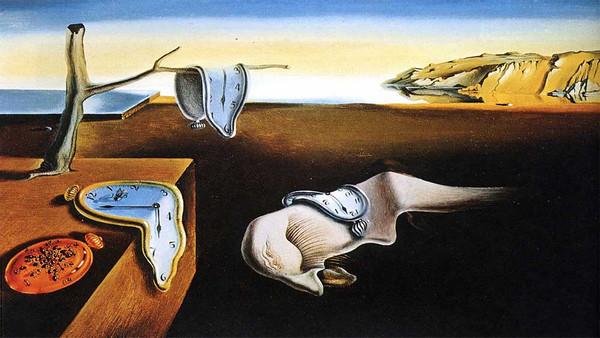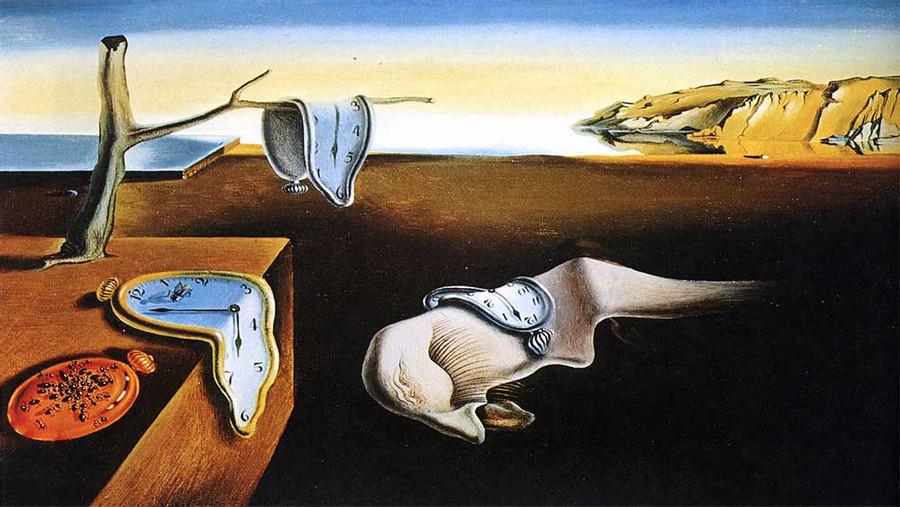Meaning of the Melting Clocks
Curated from: legomenon.com
Ideas, facts & insights covering these topics:
5 ideas
·1.47K reads
17
2
Explore the World's Best Ideas
Join today and uncover 100+ curated journeys from 50+ topics. Unlock access to our mobile app with extensive features.
Melting Clocks "The Persistence of Memory"
The Spanish surrealist Salvador Dali is one of the most enigmatic artists of the twentieth century.
Known for his often strange and surreal subject matter, Dali's most famous work of art is The Persistence of Memory (1931), widely regarded as a masterpiece of Surrealism. What is the secret hidden meaning behind Salvador Dali's painting The Persistence of Memory and its iconic melting clocks?
14
399 reads
Questions About The Melting Clocks
Sometimes referred to as just the "melting clocks" painting, in Dali's The Persistence of Memory (1931) a mysterious human-like white figure sleeps in an otherwise deserted landscape
A clock covers the sleeping figure's back, almost the same way a blanket might cover a sleeping child. Nearby, another clock drapes over a limb. While we usually think of clocks as hard, unbending objects, Dali's clocks are flexible, malleable things that seem to be soft, perhaps melting away in the desert sun. What do these melting clocks mean? Why are they laying out there in the sun? What is the hidden meaning?
15
326 reads
It's Just A Dream!
The concept of the dream is integral to understanding Surrealism and also plays a key role in unlocking the secret meaning of The Persistence of Memory.
For Surrealists, dreams were very important. A major goal of the art movement was to capture visually what it is like to be in the dream state. We have all had fantastic dreams where unrelated people, places, and objects come together in inexplicable and irrational ways. Understanding that The Persistence of Memory most likely relates to and depicts a dream state is the first step in revealing the hidden meaning of Salvador Dali’s mestery
15
260 reads
Art Meets Science
Some art history scholars believe that Dali's melting clocks may symbolize Albert Einstein's groundbreaking Theory of Relativity, a new and revolutionary idea back in the 1930s. In his Theory of Relativity, Einstein proposed a new concept of time. According to Einstein’s theory, time is a relative and complex concept that cannot be tracked with such a crude, simple gadget as a clock or a pocket watch. In The Persistence of Memory, Dali’s clocks might be melting away because they are outmoded and losing power over the world around them. Limp and increasingly ineffectual.
16
247 reads
Meaning Explained: Salvador Dali's Melting Clocks
The Persistence of Memory is arguably Dali’s most famous painting. Its iconic "melting clocks" have become an icon of Surrealism and one of the most recognizable pieces of art of the twentieth century. While the painting's true secret meaning is uncertain, Salvador Dali most likely knowingly encrypted all of these layers of historical, psychological, artistic, social and autobiographical meaning into his mysterious, enduring work of art. There may be even more layers of meaning hidden in The Persistence of Memory that we haven't found yet.
14
244 reads
IDEAS CURATED BY
CURATOR'S NOTE
One of the most famous Mesterious art works
“
Similar ideas
Read & Learn
20x Faster
without
deepstash
with
deepstash
with
deepstash
Personalized microlearning
—
100+ Learning Journeys
—
Access to 200,000+ ideas
—
Access to the mobile app
—
Unlimited idea saving
—
—
Unlimited history
—
—
Unlimited listening to ideas
—
—
Downloading & offline access
—
—
Supercharge your mind with one idea per day
Enter your email and spend 1 minute every day to learn something new.
I agree to receive email updates



